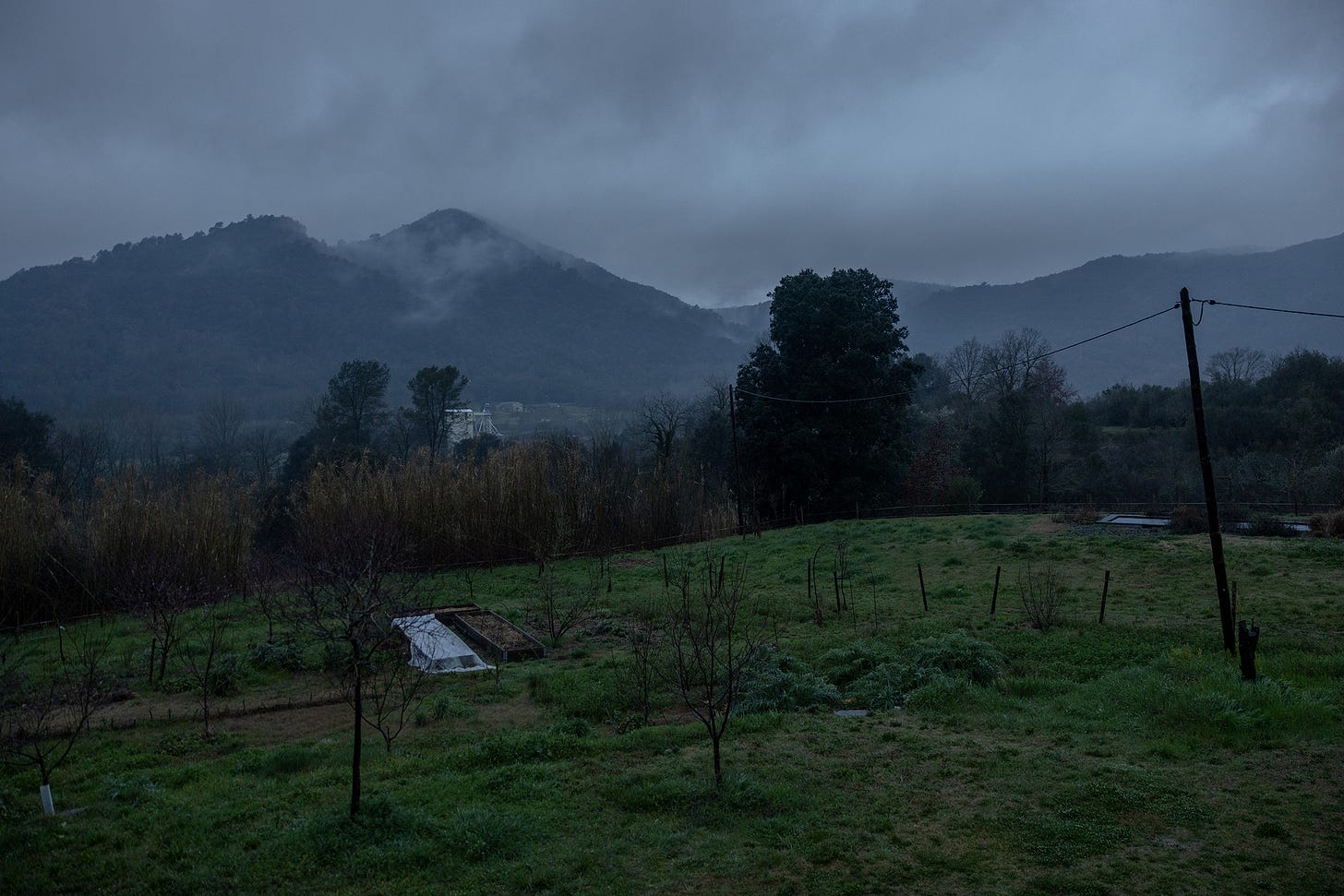Hypernormalisation
How we choose to ignore the impending catastrophe. Seen from my garden.
When the Soviet Union was on the verge of collapse in the late 70ies and early 80ies, elites knew that it was on the verge of collapse, the population knew that it was on the verge of collapse, they also knew that elites knew and elites knew that the population knew. But instead of acknowledging a crisis, authorities increasingly changed their language and tried to create a sense of an alternate reality that masked impending collapse. And because no one could imagine an alternative to the status quo, no one challenged it. That created the paradox that when the Soviet Union finally collapsed, people were prepared and surprised at the same time. That’s what anthropologist Alexei Yurchak argues in his book Everything Was Forever, Until It Was No More. He coined the term hypernormalisation for the obfuscating language elites used during that time.
Filmmaker Adam Curtis took the idea further. In his documentary Hypernormalisation he uses the term to describe a whole process in which politicians and citizens mutually create a sense of normalcy in the face of strangeness and collapse. Instead of trying to change the status quo by taking collective action, people retreat to the individual. I think we see parallels to that today.
The most obvious is of course the presidency of Donald Trump, where considerable efforts are made to normalise what is deeply absurd. Ezra Klein, who is very good at making sense of the increasing chaos around us, recently had a podcast episode trying to make sense of Trump’s tariffs. He could not. You could hear his frustration at how absurd it all is. Yet, the larger news media still often treats it as normal. This is the framework the operate in – reporting news, ideally from both sides – but this framework necessitates good faith actors and is bound to fail otherwise. But we still see people pointing out the absurdities and the impending collapse. I feel it is at a different point when we look at climate change and its impending effects.
As I am writing this here in Spain, I can see heavy rains pouring down outside. For the past three weeks it has rained almost non stop. All over the country people are struggling with flooding. This comes after last year’s record shattering rains in Valencia, which brought almost 500 litres per square meter in 8 hours. (The historic floods in Germany in 2021 saw less than half of that in three times as long.) And this came after 5 years of drought in Spain. Name any country, and there have most likely been record shattering weather extremes in the past 12 months. Globally we have not only crossed 1.5 degrees of warming, but month after month is breaking new records. And the risks are clear.
For 2025, the World Economic Forum sees extreme weather events as the second most pressing risk after armed conflict. Over the next ten years, extreme weather events top the chart of the ten biggest risks, followed by biodiversity loss and ecosystem collapse, followed by critical changes to the earth system, followed by natural resource shortages. So the top four risks over the next ten years, according to the WEF, are all at least to some degree a function of climate change. Ignoring the obvious denialists here for a second, but the point is, elites know. And we know. And they know that we know and we know that they know.
Yet, in the media it plays a less and less prominent role. Reporting on climate change has dropped considerably in the past two years. After a peak in 2022, articles of major European newspapers mentioning climate change lowered from over 4,000 to less than 1,500 in 2024 according to an an analysis by journalist Lukas Bayer. In the US you see the same trend. In 2022, broadcasters ABC, CBS, NBC and Fox aired less than 23 hours of news related to climate change. In 2024, it dropped to less than 13 hours.
It seems our response is a collective shrug. What can we do about it? The problem is so huge that it is hard to imagine an alternative to the status quo. We slowly stop talking about it and simply accept. And in rhyme with Soviet times, we see a retreat to the individual. This is just a personal observation, but social media seems to have shifted increasingly to self-optimization – through nutrition, business, therapy or workout routines.
In line with that, the dismantling of the federal government in the US by the Trump administration does have considerable backing by the public, since there is a distrust in effectiveness of collective action, that is government. In Germany we have seen a sharp rise of the extremist party AfD, which at its core is individualistic rather than collectivist, and I think the main driver of its success is a deep distrust in government.
The Trump administration does another another thing that rhymes with the Soviet times: it changes language by banning terms like “climate crisis” in government agencies. But it goes a step further: It attacks science and scientist and defunds climate research – most notably by withdrawing from the United Nations’s Intergovernmental Panel on Climate Change (IPCC).
The thing about hypernormalisation is that eventually reality will kick in. With climate change it will come as destruction by extreme weather or food or water shortages. But I think whatever happens, denialism will stay alive and well and there will be more efforts to distort data and blame others – political opponents, migrants and whatever minority is at hand.
So, please eat well, work out, go to therapy, take care of your finances, but be aware that solutions in a globalised world will always be collective. Join a party, join a union, join a community garden, go to a protest or simply vote accordingly.

